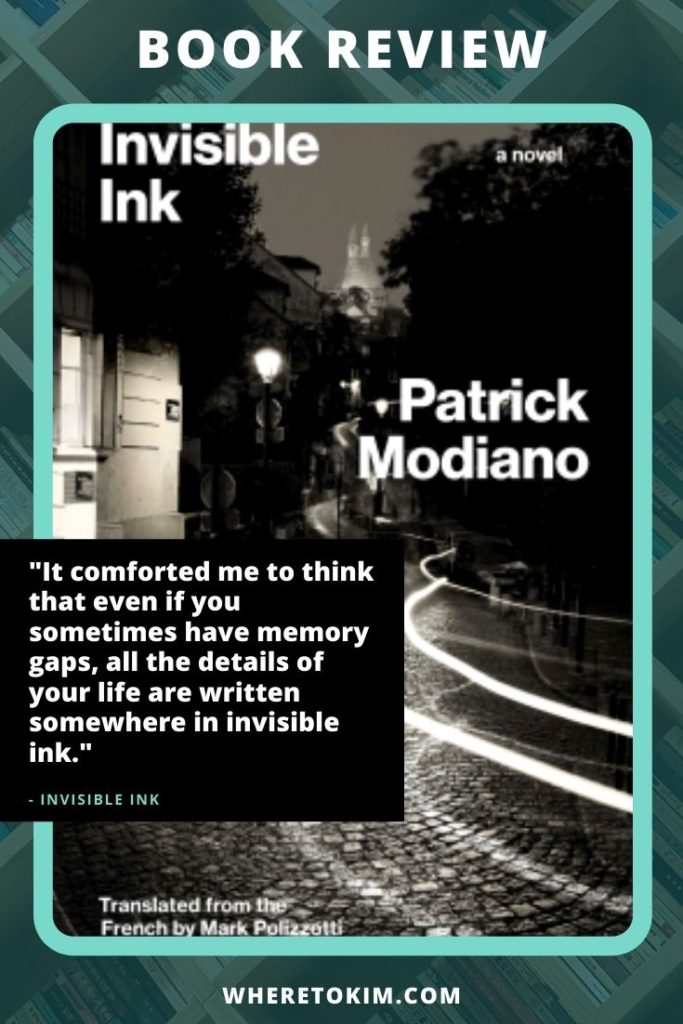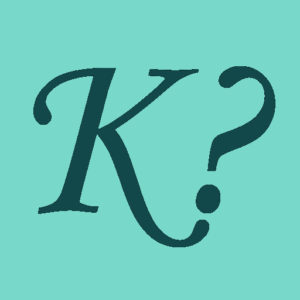Invisible Ink by Patrick Modiano discusses the traces a person leaves behind in the world and the impact their (non-)existence can have on someone else’s life.
Location: Invisible Ink is set in Paris and Rome.
Invisible Ink synopsis
The latest work from Nobel laureate Patrick Modiano, Invisible Ink is a spellbinding tale of memory and its illusions. Private detective Jean Eyben receives an assignment to locate a missing woman, the mysterious Noëlle Lefebvre. While the case proves fruitless, the clues Jean discovers along the way continue to haunt him. Three decades later, he resumes the investigation for himself, revisiting old sites and tracking down witnesses, compelled by reasons he can’t explain to follow the cold trail and discover the shocking truth once and for all.
Book review
Jean Eyben is asked to look into Noëlle Lefebvre’s disappearance. While he is shadowing her movements, he is looking for someone who can vouch for her existence. He is starting to feel like he knows her: the more you repeat something the more real it feels as if your lie isn’t entirely false and your statement becomes a truth of your past. It is almost as if you can summon someone by talking about them.
Invisible Ink is foremost about the traces a person leaves behind in the world and the impact their (non-)existence can have on someone else’s life. The narrative is not chronological; it reads like the musings of an aged chronicler looking back on his life. He is connecting loose threads in the hope to complete his memory of the past and thereby completing his life(‘s work), ultimately leading to a better understanding of himself.
He makes good use of passive knowledge, believing that there is a right time for remembering things. A thirst for knowledge will benefit you later in life, even when you learn something with no particular goal in mind at that time. The same goes when you blank out parts of the past that you would rather forget. “It comforted me to think that even if you sometimes have memory gaps, all the details of your life are written somewhere in invisible ink.”
Our narrator, Jean Eyben, is confident and persistent. You get to know him, but you’ll never get close to him. He will forever be a distant acquaintance. Patrick Modiano’s writing style is pleasant and the story reads quickly. For those of you interested in Invisible Ink: keep in mind that this is a slow-moving story without any excitement or suspense. It is just Jean Eyben and you silently contemplating questions about existence, truth, and finding answers. Invisible Ink is not necessarily a book I would recommend, but it has some interesting sections that will make you think.
Questions for reflection
Quoting the main character:
- “How can we ever disentangle the true from the false, given all the conflicting traces a person leaves behind?”
- “And do we know any more about ourselves, judging by my own lies and omissions, or my involuntary lapses?”
- “I wonder – must I really find an answer? […]Wouldn’t it be better to leave empty lots around you, into which you can escape?”
- How would you feel if we redefine a thirst for knowledge as the feeling that you’re running behind, that the end result is known already, but you have some catching up to do?
- What do you live for once you have all the answers?
Translated from French by Mark Polizzotti.
Interested?
Get your copy of Invisible Ink from Amazon (available 27 October 2020).
Many thanks to Yale University Press and NetGalley for a digital ARC of this novel in exchange for an honest review.







